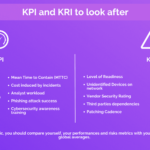Navigating the World of Personal Loans: What You Need to Know Before Applying
Personal loans can be a powerful financial tool when used wisely, offering flexibility for various needs such as consolidating debt, financing major purchases, or covering unexpected expenses. However, understanding the intricacies of personal loans is crucial to ensure you make informed decisions and secure the best terms for your situation. Here’s a comprehensive guide to help you navigate the world of personal loans.
1. Understanding Personal Loans
A personal loan is a type of unsecured loan provided by financial institutions like banks, credit unions, or online lenders. Unlike secured loans, which require collateral, personal loans are based primarily on your creditworthiness. This means that lenders assess your credit history, income, and other financial factors to determine your eligibility and loan terms.
2. Types of Personal Loans
Personal loans come in various forms:
- Fixed-Rate Loans: These loans have a constant interest rate throughout the term, making your monthly payments predictable. They are ideal for budgeting and long-term planning.
- Variable-Rate Loans: The interest rate can fluctuate based on market conditions, which means your payments can change. While initial rates may be lower, the potential for increases makes them riskier.
3. Key Factors to Consider
Before applying for a personal loan, consider the following factors:
- Credit Score: Your credit score significantly impacts the loan terms you’ll be offered. A higher score typically results in lower interest rates and better terms. Check your credit report for accuracy and address any issues before applying.
- Interest Rates: Interest rates vary by lender and are influenced by your credit profile. Compare rates from different lenders to find the best deal. Be wary of exceptionally low rates, as they may come with hidden fees or unfavorable terms.
- Loan Terms: Personal loans can range from a few months to several years. Longer terms may result in lower monthly payments but higher total interest costs. Assess your financial situation to choose a term that aligns with your repayment capabilities.
- Fees and Charges: Lenders may charge application fees, origination fees, prepayment penalties, or late fees. Carefully review the loan agreement to understand all associated costs.
- Repayment Flexibility: Some lenders offer flexible repayment options, including the ability to make extra payments or pay off the loan early without penalties. This flexibility can be beneficial if your financial situation changes.
4. How to Apply
Applying for a personal loan typically involves:
- Researching Lenders: Compare offerings from banks, credit unions, and online lenders. Look for reviews and consider customer service quality.
- Gathering Documentation: Prepare necessary documents such as proof of income, employment verification, and identification. These help lenders assess your financial situation.
- Submitting an Application: Fill out the application form accurately and submit it along with required documentation. Some lenders offer prequalification tools that let you check potential loan terms without impacting your credit score.
- Reviewing Loan Terms: If approved, carefully review the loan agreement. Ensure you understand the interest rate, repayment schedule, fees, and any other conditions before accepting.
5. Managing Your Loan
Once you’ve secured a personal loan, manage it responsibly:
- Make Timely Payments: Set up reminders or automatic payments to avoid missing due dates, which can negatively impact your credit score.
- Monitor Your Budget: Adjust your budget to accommodate loan payments and avoid taking on additional debt.
- Stay Informed: Keep track of your loan balance, interest rate changes (for variable-rate loans), and any opportunities to refinance for better terms.
Conclusion
Personal loans can be a valuable financial resource, but it’s essential to approach them with careful consideration. By understanding the types of loans available, comparing rates, and assessing your financial situation, you can make informed decisions and find a loan that meets your needs. Responsible management of your loan will help you achieve your financial goals and maintain a healthy credit profile.









